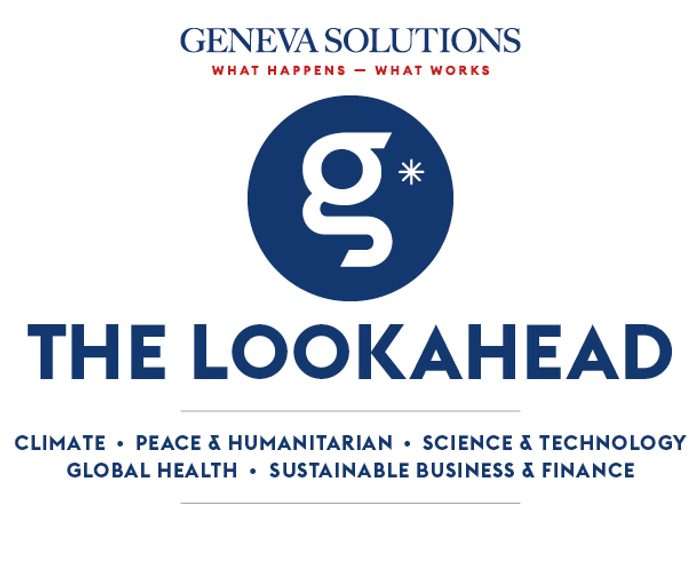Good morning, this is Paula. After the University of Bern rector cancelled her scheduled talk on Gaza, Amnesty International’s director, Agnès Callamard, speaks with our colleague at Le Temps, Aline Jaccottet, about her disappointment with western leaders for failing to condemn rights abuses in the strip.
Plus, this week, industry, government and academia heavyweights in Geneva will discuss the future of digital governance alongside companies and researchers showcasing their latest AI-powered inventions at two side-by-side events. |

Agnès Callamard, secretary general of Amnesty International speaks at the World Economic Forum in Davos, Switzerland on 26 May 2022. (Keystone/Laurent Gillieron)
|
|
|
📱🤖ALL ABOUT AI.
More than 10,000 government ministers, tech leaders, civil society experts – and robots – will gather at Geneva’s Palexpo conference centre this week for the UN tech agency’s annual summit dedicated to AI, double-backed with a high-level forum on digital development and cooperation. This year marks 20 years since governments came together in Tunis for the second phase of the World Summit on the Information Society (WSIS), where governments mulled over how to harness the revolutionary innovation shaking up all aspects of society: the internet. The year’s meeting, from 7 to 11 July, is aimed at reviewing progress since 2005 in levelling the global digital playing field, as well as wrestling with crucial questions regarding future AI governance.
|
|
Usual suspects.
Now in its ninth year, the International Telecommunication Union’s AI for Good Summit, aimed at showcasing positive uses of the technology across sectors from health to education, is bringing a number of familiar names and faces, including AI-Da, the humanoid robot artist and regular attendee, who last year sold a painting for more than $1m at Sotheby’s in New York. An overriding theme is somewhat missing from this year’s line-up that otherwise boasts a diverse array of fields – from flying cars, to robotics for humanitarian demining, to wildlife conservation drones, to “smart” teddy bears for children.
|
|
‘Agile’ AI rules.
Speaking at the launch of the new headquarters for Unicef and ITU’s Giga initiative in Geneva last Wednesday, ITU director general Doreen Bogdan-Martin called for more agile approaches" to the threats posed by new technologies as countries struggle to keep up with the pace of change and as rules designed today quickly become obsolete. "It's the ITU's role to provide a platform where stakeholders can come together," she told reporters.
|
|
AI regulation tussle.
Her comments came just ahead of the European Union on Friday confirming that it will stick to its timeline for implementing its landmark AI legislation after a concerted effort by hundreds of tech companies to delay the rules by years. The EU started rolling out the AI Act last year, with the full legislation coming into force by mid-2026.
Meanwhile across the Atlantic, the US Trump administration’s attempt to introduce a 10-year moratorium on state regulation of AI as a provision in the “One Big Beautiful Bill” was quashed by senators last week. The 99-1 vote to remove the provision came as a blow to the tech industry and other proponents who saw it as necessary to boost innovation and compete against China in the race for dominance in AI.
– By Kasmira Jefford
|
|
|
For more events, visit the Genève Internationale website.
|
|
|
GS news is a new media project covering the world of international cooperation and development. Don’t hesitate to forward our newsletter!
Have a good day!
|

|
|
Avenue du Bouchet 2
1209 Genève
Suisse
|
|
|
|








